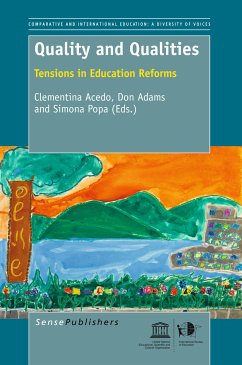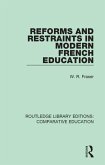Quality and Qualities: Tensions in Education Reforms is a provocative call for understanding and further exploring the elusive concept of quality in education. Although education quality has acquired high priority in the past few decades, the multiplicity of conceptualizations of quality also reflects the concerns and foci of multiple stakeholders. Coming to an understanding of quality education involves careful analysis of the context from which any particular reform or program emerges and of the continuing struggle to define and achieve it. Two main questions persist: who benefits from particular policies focused on quality? And what are the potential tradeoffs between a focus on quality, equitable distribution of education, and inclusion of various traditional expectations? This book explores notions of quality as understood within various systems of national, formal, and nonformal education. Also it considers the tensions that arise with the introduction of new standardized notions of quality in relation to international measures and educational reforms in developing countries. In all cases, specific national issues and concerns compete with global agendas.Challenges to quality that are given particular attention in the book chapters include changing definitions of quality, high expectations for education and issues with implementation, and the introduction of English as a means to achieve quality in a globalizing world. Special attention is also given to possible actions that support a more equitable education without ignoring the requisite of quality. The final chapter suggests three models/choices for seeking higher quality and guiding the educational future of nations.
Dieser Download kann aus rechtlichen Gründen nur mit Rechnungsadresse in A, B, BG, CY, CZ, D, DK, EW, E, FIN, F, GR, HR, H, IRL, I, LT, L, LR, M, NL, PL, P, R, S, SLO, SK ausgeliefert werden.









